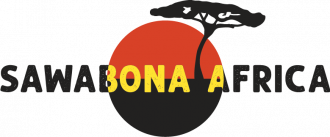From Germany to Soweto: And internship with PYMA
Diane Arvanitakis : Member of Sawabona Africa e.V.
“Education is the most powerful weapon which you can use to change the world.” (Nelson Mandela)
Those most likely to be disadvantaged by low levels of literacy are children born into low-income households. Households with less disposable income have less exposure to the broad range of instruments that aid rich literacy such as books, cultural activities, storytelling, imaginative play and embodied games. In this blog Diane writes about her daughter Veyda’s internship to PYMA and how she helped with supporting school literacy challenges.
Phakamani Young Minds Academy (PYMA) was established in 2014 by Bokang Mokoena (then 19 years old) who recognised that literacy is a result of a wider community contribution to each child. PYMA lifts the burden of education from the shoulders of school teachers and parents. It helps hold and carry the curious young minds through its broad range of after school facilities and activities.
PYMA addresses the educational gap among disadvantaged learners and enriches their literacy through homework supervision, exam preparation with tutors, extra mural activities, career development guidance, and offers books and play equipment and a safe environment. It is a youth-led organisation that offers support to learners throughout their schooling career – from their foundation phase up to their final years of secondary schooling. Mentorship programme provides avenues for work readiness as high school graduates return to PYMA as tutors and mentors to continue the cycle of giving and receiving education.

PYMA is located in Devland, Freedom Park, Soweto. The township has a population of 1.92million people. 1 of which 98.5% are black and 0.1% each are indian, asian, and white. 60% of Sowetans (213 211) earn less than 164€ per month, 20% of Sowetan households (71 070) have no income whatsoever and rely on the monthly social grant of 18€ per month (R350) . 37% of Sowetan households (131 480) earn up to 1313€ per month are considered low income to emerging middle class households. 2 Many rely on informal livelihoods including begging on street corners, waste collection, street trading, parking attendants to earn some income.

An opportunity for an internship at PYMA
At PYMA there is so much to do, and an extra head, heart and set of hands is welcomed. Being open to pioneering new approaches PYMA piloted an internship experimenting with international cooperation. The concept of an internships during the high school years so familiar to German scholars and their parents, is not common in South Africa. Only teachers and medical doctors are required to do internships during their studies. Sawabona Africa facilitated the placement of Veyda, a German learner from the Open Waldorf School Munich South-west as part of her Grade curriculum.
Veyda Magg (17 years) completed her three weeks internship at PYMA in April 2024. She is “born-free” in South African and she immigrated with her family to Munich in 2017. Born-free is a term used for all persons born after 1994 into the free and democratic nation after the long overdue demise of Apartheid.
Veyda chose to immerse herself in the Sowetan context by living with the founder of PYMA – Bokang Mokoena – and his 17 year old sister Teboho. Living in their home meant Veyda was treated to local delicacies including brains and mieliepap, oxtail stew and baked beans, the trending music on their drive in their car to and from the academy.
Veyda was motivated to work at PYMA by a need to “feel alive”, and be confronted with what it is like to live without the services many of us take for granted in our everyday lives, like uninterrupted electrical and water supply, public transport, and safety. In South Africa – due to the limited maintenance and development of the infrastructure that cannot keep up with the growing population and rapid urbanisation – loadshedding (rolling blackouts) is common since 2008.
In the midst of these challenges, the academy successfully operates out of five shipping containers that have been converted to classrooms (3 donated by Sawabona Africa e.V). Five staff members share two desks in one small office space. The 230 learners share 4 toilets (two for each gender) and newly installed play equipment. Funds for a kitchen have been secured by Sawabona Africa e.V, which can support a daily feeding programme.

Veyda occupied one of these seats in the mornings before learners arrived, and supported the PYMA team with administrative tasks. In the afternoons with the support of her mentor Thembi, she used played a game of flash cards with the weakest readers in the primary school group with the aim of improving their reading. On Friday mornings she visited the neighbouring pre-school for story-time with the young children.
But, what made the biggest impression on Veyda is how PYMA achieves so much with the limited resources it has largely because of its dedicated people.
“I am so happy to have been able to contribute in a small way to supporting literacy of children in Soweto. I am so grateful for the education opportunities I have received and wish the same for all children in South Africa” says Veyda.
Support PYMA in its efforts to bring equity and ultimately justice to children disadvantaged by a flawed education system. The ultimate goal as an organisation is to produce prominent members of the society and young people lifting themselves out of the cycle of poverty and into tertiary education and/or employment.

